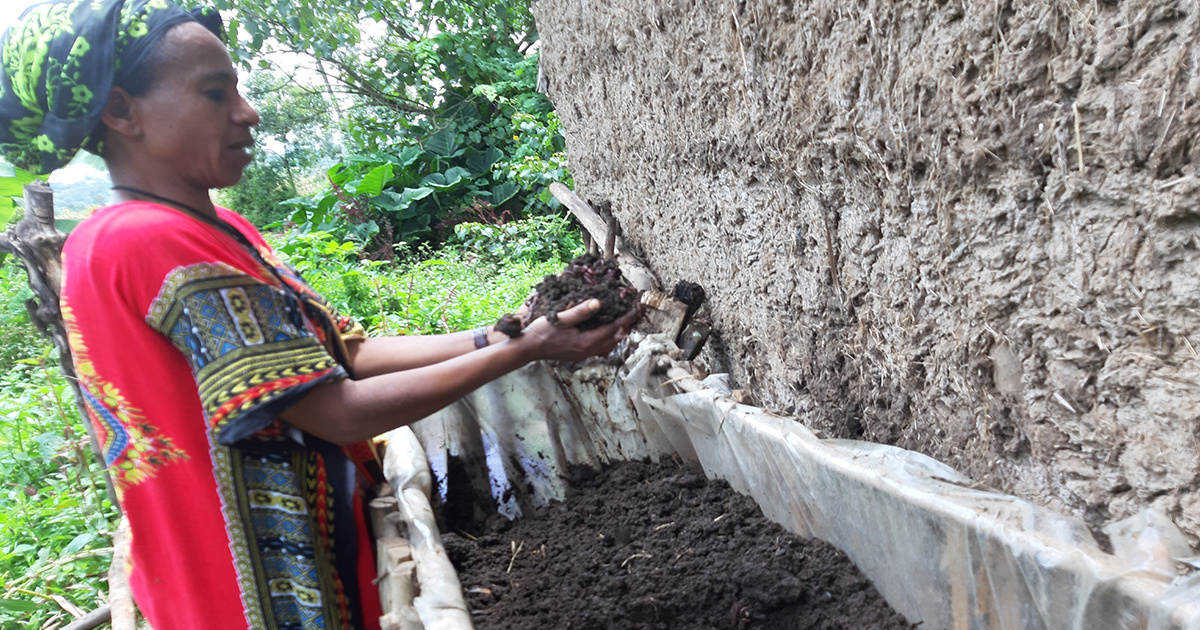To learn more about Digital Green’s AI-powered platform and how it impacts small-scale farmers in India, Ethiopia, Kenya, Nigeria and Nepal, we encourage you to sign up for our newsletter.
Videos Open Up Opportunities for a Better Tomorrow

I met Aregash Desta while I was in the field to collect data to compile the successes and lessons learnt from the Agriculture, Livelihood and Conservation (ALC) program implemented by Digital Green in Jimma zone of the Oromia region.
Aregash, one of the target beneficiaries of the ALC program, is a middle-aged woman who lives in Shashemene Kebele of Seke Chekorsa Woreda in the Oromia region of Ethiopia. She lost her husband three years ago. Before her husband passed away, she used to work with him on their farm, which was their main source of livelihood. Now the land has been divided among her children and she owns only a quarter of the 1-hectare land, a cow and a bull.
We met Aregash in a small green compound where she was busy preparing organic compost (vermicompost). She explained to us patiently the process – how she mixes the various things and checks the degree of decomposition of organic matter which she fed to the worms a few days ago.
Aregash shared that she had attended a training on preparation of vermicompost organized by the Zonal Department of Agriculture a year ago but she did not feel confident about doing it by herself until earlier this year. “In April 2019, I attended a video dissemination organized by Digital Green where the video explained step-by-step how the mixture has to be prepared and what to watch out for to make sure it is ready for use in farming,” shared Aregash. “I started making the vermicompost immediately,” she added.
Aregash shares that this batch of the vermi-compost she is busy preparing is for sale. She explains that the compost is mainly sold to coffee farmers and avocado seedling producers, and occasionally to woreda’s Office of Agriculture. “I earned over Birr 4,000 (USD 136) from sales of vermi-compost which helped me buy Teff for consumption and Ewe (female sheep) as livestock,” she shares happily. “Income from sales of vermicompost has become my main source of livelihood and given me hope for a brighter future,” shares Aregash, who is now keen to expand the business.
“These days, there is a high demand for Verme compost. I have planned to expand the production with a more advanced mechanism and scale. Moreover, I am also considering selling the worms to local farmers soon,” said Aregash.
I was impressed to see myself how powerful the digital extension system is in transforming the lives of farmers by equipping them with the necessary and applicable set of skills for livelihood improvement.